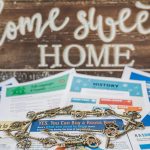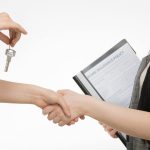Understanding Mortgage Loan Fraud Audits and How to Protect Yourself
Introduction
Mortgage loan fraud is a serious issue that continues to plague the real estate and lending industries. With rising concerns about financial integrity, mortgage lenders, borrowers, and investors must be vigilant in ensuring that all parties comply with regulations and that fraudulent activities are promptly identified and addressed. One of the most effective tools in detecting and preventing mortgage fraud is through mortgage loan fraud audits. These audits play a crucial role in identifying irregularities, safeguarding financial interests, and upholding the integrity of the mortgage process.
A mortgage loan fraud audit involves a thorough examination of mortgage-related documents, transactions, and borrower information to detect any signs of fraudulent activity. These audits can uncover a wide range of fraudulent activities, including income misrepresentation, asset falsification, identity theft, and property valuation inflation. Mortgage fraud audits are typically conducted by professional auditors with expertise in forensic accounting and fraud detection, using specialized tools and techniques to scrutinize the mortgage documents.
In this blog, we will explore the importance of mortgage loan fraud audits, how they are conducted, the common types of fraud they uncover, and the role they play in protecting both lenders and borrowers. Additionally, we will discuss best practices for preventing mortgage fraud and the steps you can take to protect yourself and your financial interests.
What is Mortgage Loan Fraud?
Mortgage loan fraud occurs when false or misleading information is provided during the mortgage application process, with the intent to deceive lenders and gain a financial advantage. This fraudulent activity can be carried out by borrowers, mortgage brokers, appraisers, or other individuals involved in the mortgage process. Mortgage loan fraud can take many forms, and its consequences can be severe for both lenders and borrowers.
There are two main types of mortgage loan fraud: fraud for property and fraud for profit. Fraud for property typically involves misrepresenting financial information or inflating income to secure a loan for purchasing a property. Fraud for profit, on the other hand, involves more complex schemes where individuals exploit the mortgage system for financial gain. Both types of fraud can result in financial losses, reputational damage, and legal consequences.
Mortgage loan fraud not only harms the immediate parties involved but can also have broader implications for the housing market and the economy as a whole. Mortgage fraud can lead to defaulted loans, inflated property prices, and the destabilization of the housing market. As a result, it is essential for all stakeholders in the mortgage process to remain vigilant and take proactive measures to detect and prevent fraud.
The Role of Mortgage Loan Fraud Audits
Mortgage loan fraud audits play a critical role in identifying and addressing fraudulent activities in the mortgage industry. These audits are conducted by forensic auditors who examine mortgage loan files and related documents to uncover discrepancies, irregularities, or signs of fraudulent activity. The audit process involves a detailed review of the borrower’s application, financial statements, supporting documentation, and other relevant information.
One of the primary objectives of a mortgage loan fraud audit is to verify the accuracy and authenticity of the information provided by the borrower. This includes verifying income, employment, credit history, assets, and property details. Auditors also look for inconsistencies or signs that the borrower may have falsified information in order to qualify for a loan they would not otherwise be eligible for.
Mortgage loan fraud audits are essential for protecting both lenders and borrowers. For lenders, these audits help to mitigate the risk of financial losses by identifying fraudulent loans before they become a problem. For borrowers, these audits can help to ensure that they are not being misled by dishonest parties or becoming involved in fraudulent transactions unknowingly. Mortgage loan fraud audits provide a layer of protection for all parties involved in the mortgage process.
Common Types of Mortgage Loan Fraud
Mortgage loan fraud can take on many different forms. Some of the most common types of mortgage loan fraud include:
- Income Misrepresentation:This occurs when a borrower inflates their income or provides false information about their employment status to qualify for a larger loan. Fraudulent borrowers may provide fake pay stubs or tax returns to make themselves appear more financially stable than they are.
- Asset Falsification:Borrowers may falsify their assets to show that they have more money than they actually do. This can include inflating bank account balances or providing fake documentation for assets such as stocks, bonds, or retirement accounts.
- Appraisal Fraud:Appraisers may inflate the value of a property to ensure that the mortgage loan is approved. This is often done in collaboration with the borrower or the mortgage broker, and it can result in the borrower obtaining a loan for more than the property is worth.
- Identity Theft:In some cases, criminals may steal the identity of another person and use it to apply for a mortgage loan. This type of fraud can be especially difficult to detect and can lead to significant financial losses.
- Foreclosure Rescue Scams:These types of fraud schemes target homeowners who are struggling with their mortgage payments. Fraudsters promise to help homeowners avoid foreclosure but end up taking their money without providing any real assistance.
- Straw Buyer Schemes:A straw buyer is someone who purchases a property on behalf of another person, often using false or misleading information to secure the loan. These schemes are typically used to launder money or to obtain properties that the original buyer may not have been able to afford.
- Loan Stacking:Loan stacking occurs when a borrower takes out multiple loans for the same property without disclosing them to the lender. This can lead to the borrower becoming over-leveraged and unable to repay the loans.
- Loan Fraud by Mortgage Brokers:Mortgage brokers can sometimes engage in fraudulent activities, such as falsifying loan applications, inflating property values, or misleading borrowers about loan terms. This type of fraud can have serious consequences for both borrowers and lenders.
How Mortgage Loan Fraud Audits Are Conducted
Mortgage loan fraud audits are typically conducted by forensic auditors with expertise in fraud detection and accounting. These audits involve a thorough review of the borrower’s mortgage application, supporting documents, and transaction history. The audit process is designed to uncover any discrepancies, irregularities, or signs of fraud that may be present.
- Document Review:The first step in the audit process is to review all of the borrower’s documents, including the loan application, income verification, bank statements, tax returns, and property appraisal reports. Auditors will verify the authenticity of these documents and check for inconsistencies or falsifications.
- Income and Employment Verification:Auditors will verify the borrower’s income and employment history by contacting employers and reviewing pay stubs, tax returns, and other relevant documents. This helps to ensure that the borrower’s financial situation is accurately represented.
- Asset Verification:Auditors will also verify the borrower’s assets, including checking bank statements, investment accounts, and other financial documents. This is done to ensure that the borrower has sufficient assets to support the mortgage loan.
- Property Appraisal Review:A key part of the audit is to review the property appraisal to ensure that the property value is accurate and reasonable. Auditors may compare the appraisal to similar properties in the area to check for any signs of inflation.
- Fraud Detection Tools and Techniques:Forensic auditors use specialized fraud detection tools and techniques to identify suspicious patterns or activities. These tools can include software that scans mortgage files for red flags, as well as techniques for identifying common types of fraud such as income misrepresentation or appraisal fraud.
- Reporting and Recommendations:Once the audit is complete, the auditors will prepare a detailed report outlining their findings. This report may include recommendations for further action, such as referring the case to law enforcement or taking steps to rectify any discrepancies.
The Importance of Mortgage Loan Fraud Audits
Mortgage loan fraud audits are essential for protecting the integrity of the mortgage industry and ensuring that all parties involved in the mortgage process are operating ethically and legally. By identifying and addressing fraudulent activities early, mortgage loan fraud audits can prevent financial losses, reputational damage, and legal consequences for both lenders and borrowers.
For lenders, conducting mortgage loan fraud audits helps to minimize the risk of defaulted loans and financial losses. By identifying fraudulent loans before they are approved, lenders can avoid lending to high-risk borrowers and reduce their exposure to fraud. Mortgage loan fraud audits also help to ensure that the lender’s portfolio is compliant with regulatory requirements and industry standards.
For borrowers, mortgage loan fraud audits provide peace of mind by ensuring that they are not being misled or taken advantage of by dishonest parties. Fraud audits help to uncover fraudulent activities such as identity theft or appraisal inflation, which can have serious financial consequences for the borrower. By conducting thorough audits, borrowers can protect themselves from becoming involved in fraudulent transactions and avoid potential legal issues.
How to Protect Yourself from Mortgage Loan Fraud
While mortgage loan fraud audits are an essential tool for detecting and preventing fraud, there are also steps that you can take to protect yourself from becoming a victim of mortgage fraud. Here are some best practices for safeguarding your financial interests:
- Be Cautious When Sharing Personal Information:Be careful when sharing sensitive personal information such as your Social Security number, bank account details, and employment information. Only provide this information to trusted parties and ensure that the communication is secure.
- Verify the Credentials of Your Mortgage Broker or Lender:Before working with a mortgage broker or lender, verify their credentials and reputation. Look for reviews and ratings from previous clients, and make sure they are licensed and regulated by the appropriate authorities.
- Review All Documents Carefully:Always read and review all mortgage-related documents carefully before signing. If something seems suspicious or unclear, ask for clarification before proceeding.
- Monitor Your Credit:Regularly check your credit report to ensure that no fraudulent activity has occurred. If you notice any discrepancies or unfamiliar accounts, report them immediately.
- Seek Professional Help if Needed:If you suspect that you have been a victim of mortgage fraud, seek professional help from a forensic auditor or legal expert. They can help you identify and address any issues before they become more serious.
Conclusion
Mortgage loan fraud is a growing concern in the real estate and lending industries, but mortgage loan fraud audits are an essential tool in detecting and preventing fraudulent activities. These audits play a crucial role in safeguarding financial interests, ensuring compliance, and maintaining the integrity of the mortgage process. By conducting thorough audits and remaining vigilant for signs of fraud, lenders and borrowers can protect themselves from the potentially devastating effects of mortgage fraud.
In addition to conducting audits, it is important for all parties involved in the mortgage process to take proactive steps to protect themselves from fraud. By following best practices such as verifying the credentials of mortgage professionals, reviewing documents carefully, and monitoring credit reports, borrowers can safeguard their financial future and avoid becoming victims of fraud.
If you are concerned about mortgage loan fraud or want to ensure that your mortgage transactions are secure, consider working with a professional forensic auditor or fraud detection expert. Contact us today at (877)-399-2995 or visit Mortgage Audits Online to learn more. Secure your financial future with confidence!




